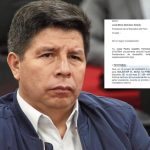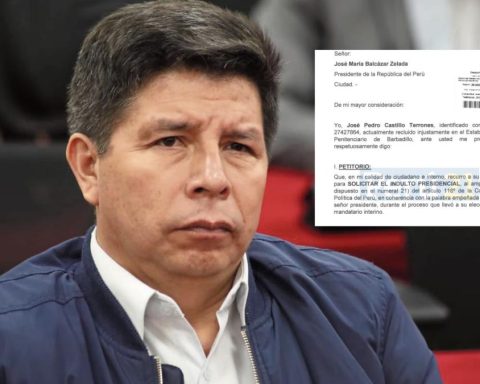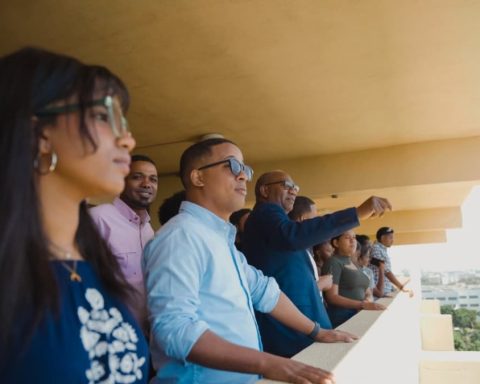It was something that everyone knew and commented quietly but no one dared to say out loud. LThe validation of the signatures collected by the Broad Front and social organizations, and the consequent call for a referendum, put the government’s agenda on pause, or at least part of it, until March 27. The political agenda was absorbed by the 135 articles of the Law of Urgent Consideration –and all the surrounding discussions that it generates- and some deadlines foreseen by the government in its beginnings have already been disrupted.
In the last week of the campaign, nothing that was not done will materialize and There are several reforms that the government will have to face after knowing the result of the referendum.
Social Security
It was the first issue to be postponed. Already at the beginning of September 2021, the Executive Power made the decision to postpone the social security reform until after the referendum, despite the fact that it was given the deadlines to present a project before.
At the beginning of November 2021, the Committee of Experts on Social Security (CESS) submitted the report with the recommendations and now it is the Executive Power that must prepare a bill to send to Parliament.
As it was “very difficult” to send the text before the end of the year, the Executive decided to postpone it until after the referendum. “The reasonable thing is not to interfere in the debate on the referendum,” a government source told El Observador at the time.
This reform will put sensitive issues on the table, such as the retirement age, which puts the government in a bind. The closer to the 2024 elections this project is discussed, the more difficult it will be to gather the necessary wills to approve it.
Public workers
In the Budget approved in 2020, the Executive Branch established a new system of medical licenses for public officials. Alarmed by the number of certifications in the state sector, the government decided to modify the current regime that does not discount any percentage of the salary of those workers who get sick and do not go to work.
However, the system proposed by the Executive did not convince the ruling party that asked to form a commission to discuss a new project. So, the Budget created a new system on hold and a commission to review that new system.
The agreement between the Executive and coalition legislators was that the new regime would not enter into force until Parliament had a new bill to discuss an alternative system. More than a year after the initial planned date for launching the new medical licensing regime, nothing has changed and Parliament still does not have a new text to debate.
However, this project is drafted and in the hands of the Presidency soon to be sent to Parliament from mid-2021. The National Civil Service Office (ONSC) finished its work as head of the commission created to deal with the issue and raised the new text to the president’s office which, for now, rests in a drawer.
However, this is not the only point related to public officials that was postponed by the government. The initial idea of the ONSC and the Executive was to include several articles in the 2021 Rendering of Accounts to reform, among other things, the functional career of State workers.
But due to lack of time, according to what they said from the government, these modifications were postponed for the next surrender, in mid-2022.
fuels
Beyond the controversy generated by the pricing system that will be challenged by this Sunday’s referendum, the reform of the fuel market has other stages that go in parallel. And one of those steps, linked to the distribution of the product offered by the stations, had to be completed in January 2022.
The Ursea requested in recent weeks the postponement of this instance due to lack of technical and financial resources, as reported by Search and confirmed by El Observador. This stage, now postponed until June 2022, proposes, among other things, that the distributors absorb the costs of freighting the fuel to the stations.
Other reforms
The government decided to postpone until April the application of the new docking regulations for container ships with the aim of creating a new space for negotiation with the Montecon company, which intends to continue operating in the Port of Montevideo.
This change, linked to the extension of the concession until 2081 of the Specialized Container Terminal to Katoen Natie, had generated union conflicts and stoppages in the port. In this way, the Executive ensures a certain calm for several months in one of the nerve centers of the country’s economy.
But there are also other reforms or changes announced by government officials during 2020 that also made no progress. In August, the president of the Central Bank, Diego Labat, assured that he intended to advance in the second half of that year in the reform of the organization’s charter. One of the intended changes is that the directors of the BCU do not coincide with the electoral cycle.
Although Labat assured that he did not intend to “set deadlines”, the idea was to seek a broad consensus to provide greater independence to the monetary authority. However, so far there has been no news on this issue.
Parliament
Parliament has also been paralyzed for several months. Several projects that had already been discussed slowly were completely off the political and media radar. The media law, the projects linked to usury, some investigative commissions and other issues that could generate division in the ruling party, such as the review of the tax system requested by the Cabildo from the Ministry of Economy, have been forgotten in recent months.
The extension of solidarity wages as they were working was an intermediate solution that they found in the Congress of Mayors. The leaders were unable to agree with the Executive on the new conditions of the program and extended the current ones until March 31.
progress the same
An issue that advanced despite the fact that it will be submitted to a referendum is number portability. The articles that enable the passage of the cell phone company without losing the number may be repealed on March 27, but the government decided to execute it anyway. The initial numbers confirm that the number of users that make use of this is residual and, globally, Antel has benefited from new clients.
















